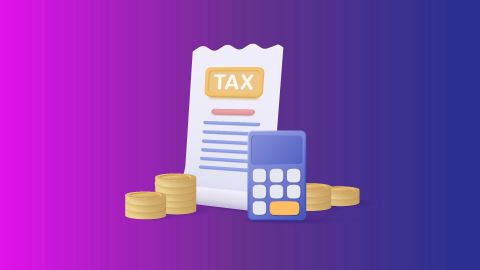What do accounting systems track?
Accounting systems are comprehensive tools that monitor various aspects of a business’s financial operations. These include:
- Income and expenses: Ensuring all financial inflows and outflows are accurately recorded.
- Accounts payable and receivable: Keeping track of money owed to suppliers and payments due from clients.
- Inventory levels: Linking inventory data with financial records to avoid discrepancies.
- Payroll management: Calculating employee salaries, taxes, and benefits.
- Financial reporting: Generating key reports like balance sheets, profit and loss statements, and cash flow analyses.
By tracking these details, accounting systems help businesses maintain financial accuracy and make data-driven decisions.
How does the accounting system work?
The functionality of an accounting system is built around recording and analysing financial data systematically. Here’s how these systems typically work:
- Data collection: All transactions, such as sales and purchases, are recorded in a central database.
- Categorisation: Each transaction is sorted into categories like revenue, expenses, or assets.
- Recording: Data is input into ledgers or automated software to ensure proper documentation.
- Processing: Advanced tools process the data, identify errors, and compute totals.
- Reporting: Finally, the system generates detailed financial reports that provide actionable insights.
This streamlined process ensures accuracy and enables businesses to focus on decision-making without getting bogged down by manual tasks.
Types of accounting systems
Every business has unique requirements, and choosing the right accounting system is critical for meeting those needs. Here are the main types of accounting systems:
By Method/Principle:
- Single-Entry System: One-sided records for simple needs.
- Double-Entry System: Balanced debits/credits for full accuracy.
- Cash Basis Accounting: Records only when cash moves.
- Accrual Basis Accounting: Records when transactions occur.
By Technology/Implementation:
- Manual System: Paper-based.
- Computerised System: Software-driven.
- Cloud-Based System: Online, scalable.
- Enterprise Systems (ERP): Integrated corporate tools.
By Purpose/Focus Area:
Financial, Managerial, Cost, Tax, Forensic, and Industry/Non-Profit Accounting: Serve reporting, planning, compliance, investigation, and specialised needs.
For small and medium-sized enterprises, cloud-based systems are an excellent choice, offering affordability and scalability as businesses grow.
Single-entry vs. double-entry accounting systems
Accounting systems can follow either single-entry or double-entry methods. Understanding these approaches can help determine which one suits your business best.
Feature
|
Single Entry Accounting
|
Double Entry Accounting
|
Transaction recording
|
Each transaction is recorded once, usually in a cash book.
|
Each transaction is recorded twice, once as a debit and once as a credit.
|
Data covered
|
Tracks mainly income and expenses, focusing on cash flow.
|
Records assets, liabilities, equity, income, and expenses.
|
Error detection
|
Errors are harder to identify due to limited cross checks.
|
Errors are easier to spot since total debits must equal total credits.
|
Financial insight
|
Provides a basic understanding of cash movement.
|
Offers a complete financial view to support planning and business growth.
|
Compliance and audit
|
Generally does not meet audit or investor reporting requirements.
|
Complies with GAAP and IFRS standards and is suitable for audits.
|
For example, in a double-entry system, a sale increases cash while reducing inventory, offering a balanced and detailed view of finances.
Examples of accounting systems
There are various accounting systems available, each catering to specific business needs. Popular examples include:
- QuickBooks: A versatile software ideal for small businesses, known for its user-friendly interface and robust cloud integration.
- Tally ERP 9: Popular in India, offering features like GST compliance, inventory management, and payroll.
- Xero: A cloud-based platform perfect for startups and freelancers, offering real-time data access.
- SAP ERP: Designed for large organisations, it provides advanced analytics and reporting capabilities.
Selecting the right system depends on factors such as the size of your business, industry, and specific financial needs.
Advantages and disadvantages of accounting systems
Implementing an accounting system comes with both benefits and challenges. Here’s a closer look at its advantages and disadvantages:
Advantages (Pros)
|
Disadvantages (Cons)
|
Improved accuracy: Automated calculations minimise human errors that are common in manual accounting.
|
High initial costs: Upfront spending on software, hardware, implementation, and staff training can be significant.
|
Greater efficiency: Routine tasks such as invoicing, data entry, and payroll are automated, saving time and effort.
|
Learning curve and training needs: Staff require training to use the system effectively, which may temporarily slow productivity.
|
Real time financial data: Provides instant access to current financial information, supporting quicker and better decisions.
|
Data security risks: Electronic storage of financial data increases exposure to cyber threats, breaches, or internal misuse.
|
Stronger compliance and auditing: Built in controls support tax compliance and create clear audit trails, making audits easier.
|
Technical failures: Dependence on power, internet, and hardware means system outages can disrupt operations or risk data loss.
|
Scalability: Modern systems can easily handle increased transaction volumes as the business grows.
|
Limited customisation: Standard software may not fully meet unique business or industry requirements without costly modifications.
|
Better financial visibility: Dashboards and detailed reports offer clear insights into financial performance and trends.
|
Garbage in, garbage out risk: Errors in initial data entry can affect the accuracy of all reports and outputs.
|
Improved collaboration: Cloud based systems allow authorised users to access data simultaneously from different locations.
|
Employee resistance: Some staff may resist new systems due to fear of change or concerns about job security.
|
Despite the challenges, the advantages of using an accounting system far outweigh its drawbacks, making it an indispensable tool for businesses aiming to streamline operations.
How Bajaj Finserv Chartered Accountant Loan can help?
Investing in an advanced accounting system can sometimes require significant capital, but it’s a crucial step for improving your financial management. For Chartered Accountants, Bajaj Finance offers a CA Loan to make this process easier.
This loan is tailored to meet the unique needs of CAs, offering benefits such as:
- Flexible repayment terms to manage finances comfortably.
- Quick approval and disbursal for urgent purchases like accounting software.
- High loan amounts to accommodate all business requirements.
With CA loan from Bajaj Finance, upgrading your practice with the latest accounting systems is now hassle-free and affordable.
Conclusion
An accounting system is more than just a financial tool - it’s the backbone of effective business management. By automating repetitive tasks, tracking essential metrics, and providing actionable insights, these systems ensure businesses run efficiently. For Chartered Accountants, upgrading to advanced systems is now easier than ever with support from a CA Loan by Bajaj Finance, along with flexible options like a professional loan. Embrace the power of technology and take your financial management to the next level!





